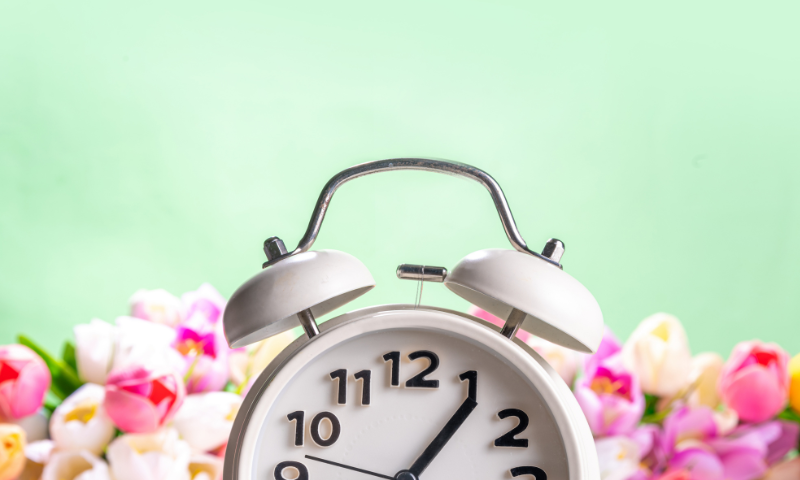As the seasons change and we adjust our clocks for Daylight Saving Time (DST), it’s good to understand how this shift not only gives us longer evenings but also impacts our circadian rhythm and overall well-being. Adapting to Daylight Saving Time
Adapting to Daylight Saving Time can take a toll on our sleep patterns and mental health because our internal clocks are designed to follow the natural light of the day. So when we shift the clock forward, it can disrupt our body’s sense of night and day. This disruption often leaves many people feeling groggy or out of sorts after the time change. However, with a few simple strategies, we can ease into the transition and maintain our health and energy levels.
Strategies for Adapting to Daylight Saving Time
Make a Gradual Transition
One of the best ways to adapt to the time change is to adjust your sleep schedule gradually. In the days leading up to DST, try to go to bed and wake up 15-20 minutes earlier than usual. This gradual shift can help your body adapt more smoothly to the new schedule.
Embrace the Light
Make the most of the natural light during the day. Exposure to sunlight, especially in the morning, can help reset your internal clock and reduce feelings of sleepiness. If it’s still dark when you wake up, consider using a light therapy box to mimic natural light.
Maintain Sleep Hygiene
Stick to a regular sleep schedule, even on weekends, to help regulate your sleep-wake cycle. Create a calming bedtime routine, reduce screen time before bed, and make your sleep environment comfortable and conducive to rest.
Stay Active
Regular exercise can help you adapt to the time change by tiring you out and making it easier to fall asleep at night. Preferably, engage in outdoor activities to maximize your exposure to natural light and boost your vitamin D levels.
Mind Your Meals
What and when you eat can also influence your sleep. Avoid heavy meals, caffeine and alcohol close to bedtime, as they can disrupt sleep. Try to eat dinner earlier in the evening to give your body time to digest before you go to sleep.
Practice Relaxation Techniques
Stress can hinder our ability to fall asleep and stay asleep. Incorporate relaxation techniques like deep breathing, meditation or gentle yoga into your routine to help calm your mind and body.
Health Tips Associated With the Change in Time
As we adjust our clocks, it’s a good opportunity to reassess and improve our daily routines to support our health.
Hydrate and Nourish
With the arrival of spring, it can be easy to overlook hydration. Make sure you’re drinking plenty of water throughout the day. Eat a balanced diet rich in fruits, vegetables, whole grains, lean protein and healthy fats to fuel your body and mind.
Re-evaluate Your Exercise Routine
Longer days mean more opportunities to get outside and be active. Consider setting new fitness goals or trying new outdoor exercises to take advantage of the extra daylight.
Check-In With Your Mental Health
The change in season and time can affect mood and energy levels. Be mindful of your mental health and seek support if you notice signs of seasonal affective disorder or other mental health concerns.
Reset Your Routines
Use the time change as a reason to review and reset your daily routines. Reflect on your habits and set goals to cultivate healthier ones, like reducing screen time or prioritizing self-care.
Adapting to the time change is an opportunity to refresh your habits and enhance your holistic health. When we are proactive and mindful about making changes, we can minimize the disruption to our internal clocks and embrace the longer days with vitality and well-being.
Remember, small steps can make a big difference when it comes to navigating the shifts in time and season!






